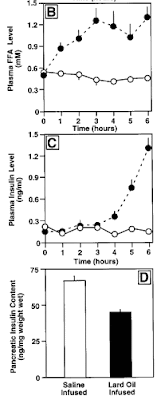Could Early Insulin Therapy for T2 be Coming to Canada?

A short post here, because I have no peer review study to refer to. But Nigel Kinbrum recently blogged on this media report: New treatment might put Type 2 diabetes in remission . This report touted 75% remission from T2 using self-administered insulin of 4 injections per day for one month. This is less aggressive than reported in other studies (some summarized here , table below) Most of these used insulin infusions for a couple of weeks and early response rate was around 90%. This treatment may be more practical (and cost effective?) but perhaps not intensive enough to to get the optimum outcome. Still, 75% is impressive. The article discusses that they want to follow up with an oral diabetic drug to "save" the pancreas, which the studies above involved lifestyle "treatment" only. So this article is about a year old and I wondered if it ever made the literature. I did a PubMed on Dr. Bernard Zinman and got no love. ...





